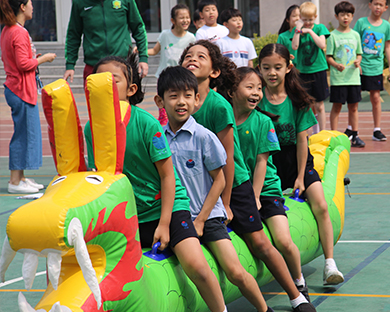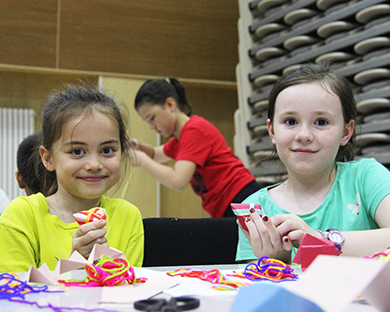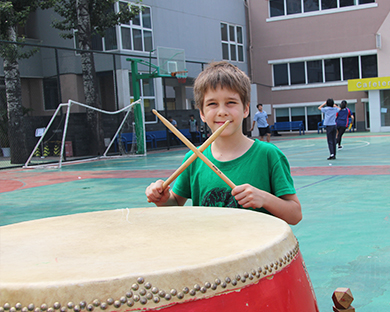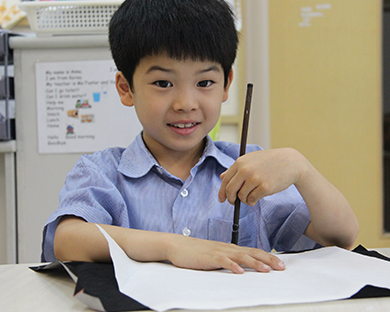Go Back
News
News
Making, Racing, Painting: How to Teach Chinese Culture
News
19 Jul, 2018
10 : 00
“At the heart of our education model is the integration of Chinese elements into our otherwise Western curriculum” explains Ms April Peng, Primary Chinese Coordinator. “It is important that our students understand and connect with Chinese history and culture, and doing so also enables them to enhance their language skills.”
Throughout the school year, students at Yew Chung International School of Beijing take part in activities that help them engage with Chinese culture. For some of our students, these are already a part of their life at home and for others, they are less familiar. Bringing students together to enjoy Chinese activities and even learn from each other’s experience is a valuable lesson in global citizenship and a key part of our education model that blends East and West.
As ever, this year’s calendar of events has been filled with Chinese activities. Highlights include Kung Fu classes, the Temple Fair, Year of the Dog celebrations and a visit from an actress of the Peking Opera.
Making Zongzi
Shortly before the end of term, students around the school celebrated Duanwu Jie, or Dragon Boat Festival. Activities began with a zongzi making workshop – in which students learned how to make the traditional packages of steamed glutinous rice wrapped in bamboo leaves. Activities took place in the school canteen and were led by our specialist caterers Chartwells.
“Before the class began”, explains Ms Peng, “students learned about the history and significance of the zongzi and Duanwu Jie.” Chinese people eat zongzi on Dragon Boat Festival to commemorate the death of the poet and minister Qu Yuan. Qu Yuan, who was greatly loyal to his state, was exiled by the king who accused him of treason. The poet and patriot was so grief-stricken that he drowned himself in the Miluo River. Legend has it that people threw rice into the river to stop the fish from eating Qu Yuan’s body. The rice is represented nowadays by zongzi.
“The hands-on zongzi making class was a great way to teach this important Chinese story while immersing students in an annual tradition of folding and wrapping the rice parcels”, said Ms Peng.
Dragon Boat Racing
As well as making zongzi, Primary students took part in dragon boat racing across the school playground. Students beat the giant red drums while house teams on inflatable dragons fiercely raced against each other to the finish line.
“The dragon boat racing a particular highlight of the Duanwu activities. It’s an opportunity for students to compete in houses and top up their house points before the end of term, but of course it represents another important aspect of the festival. In the story of Qu Yuan’s death, locals rowed boats across the river to try to save him from drowning, and the dragon boat tradition was born. There’s no better way to teach a festival then to allow our students to take part in its activities.”
Traditional Chinese Brush Painting
Also in the final few weeks of term Ms Zoe Yao, one of our Primary Chinese teachers and herself a keen painter, led a brush painting workshop for the Primary students. Using traditional Chinese methods, she showed students how to paint bamboo plants, applying varying pressure and using different strokes with the brush to achieve different weights and shapes in the line.
“The brush painting workshop allowed our students to learn a very traditional Chinese style of painting that they will find in many museums” explained Ms Peng. “While helping them to connect with a traditional art form and appreciate the artistry behind brush painting, it also exposed them to specific language and terminology around calligraphy and brush work – deepening their Chinese language skills.”
Chinese activities and celebrations lie at the heart of YCIS Beijing. Teachers aim to provide an environment in which the local context can be explored and understood, allowing our students to feel part of life in China and contributing towards their global education.












